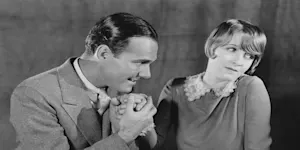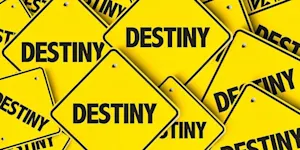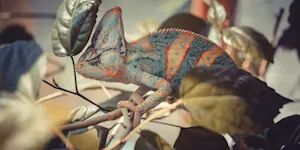What Makes This Word Tick
"Bemuse" is a delightful word that dances between confusion and distraction. It's one of those words that leaves you scratching your head, wondering if you've missed the punchline in a joke. Whether it's a puzzling art exhibit or someone’s odd behavior, if it catches you off-guard and leaves you pondering, it might very well be "bemusing."
If Bemuse Were a Person…
Picture an eccentric, absent-minded professor who always forgets where they left their glasses. They’ve got a twinkle in their eye and a tendency to go off on tangents that leave you both baffled and amused. This charming personality doesn't mind being a bit out of sync with the world.
How This Word Has Changed Over Time
In the past, "bemuse" was closely linked to being muddled by something astonishing or wondrous rather than outright confusing. Today, it's evolved to describe the subtle charm of feeling slightly befuddled—think of a quaint puzzle you enjoy untangling in your mind.
Old Sayings and Proverbs That Use Bemuse
While "bemuse" doesn't feature heavily in traditional proverbs, the sentiment dances through sayings that advise on life’s mysteries, such as, "Not everything is meant to be understood—embrace the bemusement."
Surprising Facts About Bemuse
Originally, "bemuse" was thought to relate to being inspired by the Muses, those mythical patrons of the arts and sciences. However, over time, its use became more about the perplexity that sometimes accompanies creativity rather than the direct inspiration.
Out and About With This Word
You might come across "bemuse" in everyday situations like trying to understand abstract art or navigating a friend's bewildering storytelling style. It’s the perfect word for those "wait, what just happened?" moments at family gatherings.
Pop Culture Moments Where Bemuse Was Used
The whimsical and unpredictable worlds depicted in "Alice in Wonderland" could easily be described as bemusing. When Alice ponders the oddities of Wonderland, she embodies bemusement, caught between confusion and laughter.
The Word in Literature
In literature, "bemuse" might pop up in tales where characters encounter perplexing situations that lead them to question reality or find humor in absurdity. It's often used to describe that charming state of puzzled amusement in works of surreal or fantastical fiction.
Moments in History with Bemuse
Imagine the reactions of spectators witnessing the Wright brothers' first flight. The sight of a contraption soaring through the sky must have bemused many onlookers who were left to wonder at the marvel before their eyes—equal parts confusion and captivation.
This Word Around the World
In French, the equivalent might be "perplexe," while in Spanish, it might translate to "perplejo." The beautiful thing about bemusement is how a myriad of cultures understand and appreciate this blend of curiosity and confusion.
Where Does It Come From?
"Bemuse" finds its roots in the prefix "be-" combined with "muse," essentially meaning to be thoroughly mused or confused. It’s a word tailor-made for capturing that foggy mental state that only time—or a good cup of tea—can clear.
How People Misuse This Word
Often, people think "bemuse" is synonymous with "amuse." While "amuse" leans toward finding something entertaining or fun, "bemuse" is more about being pleasantly perplexed or intrigued by something out of the ordinary.
Words It’s Often Confused With
Amuse: Often mixed up due to similar sounds, but amuse is simply about entertainment, not the puzzled amusement.
Confuse: While overlapping, as confusion does play a part, bemuse carries a lighter, more whimsical connotation.
Befuddle: This shares a sense of confusion, but befuddle implies much deeper bewilderment than bemuse.
Additional Synonyms and Antonyms
Much like "perplex" or "puzzle," its synonyms bring out a sense of charming confusion. In contrast, antonyms like "clarify" or "enlighten" usher in understanding and enlightenment, the checkmates to bemusement’s chess game.
Want to Try It Out in a Sentence?
Here's a suggestion: "Watching the magician's complex trick bemused the audience, leaving them both confused and captivated by the mystery."
















